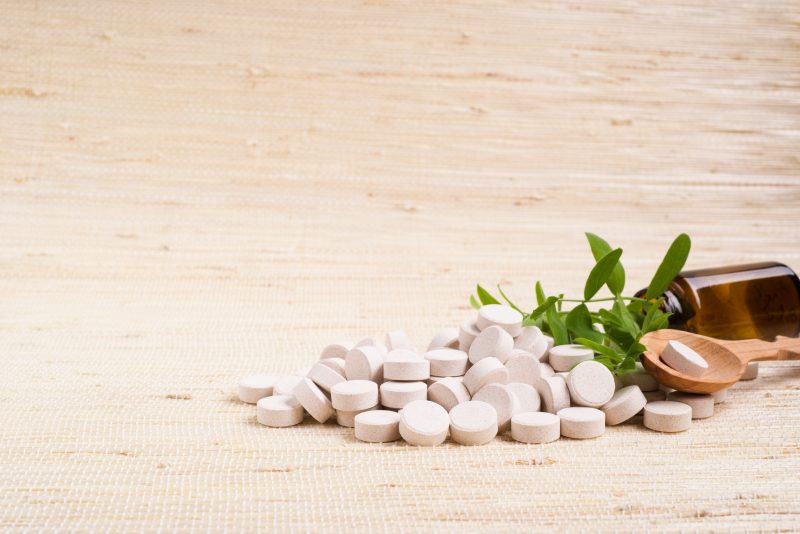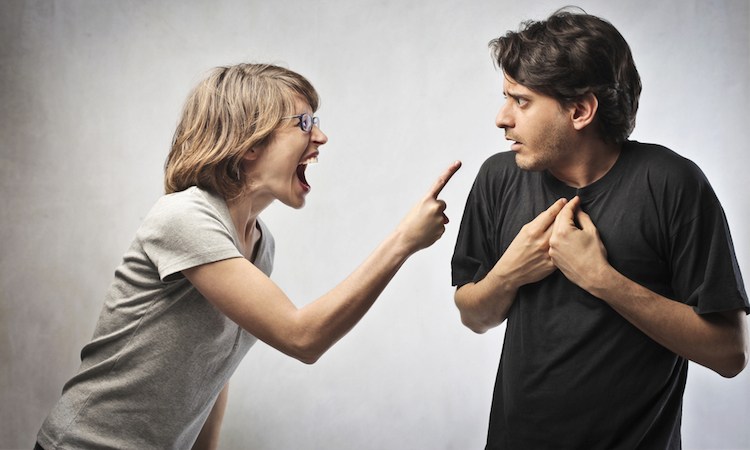Written by Sadie Wirthlin
Every woman will experience the hormonal decrease that is menopause, the effects of which are normally treated with prescription medicine. Although medication can help in most cases, some women fear the effect that long-term drug use can have on the body, even with prescription drugs. As an alternative, a recent study has revealed a more natural way to relieve menopausal symptoms.
Dr. Taulant Muka, researcher at Erasmus University Medical Center and lead author in this study, tested plant-based supplements on women experiencing menopause. As a result, he found that hot flashes and vaginal dryness were greatly reduced, all thanks to phytoestrogens, which are components found in plants and are similar to estrogen.
As uncomfortable as menopause may be, symptoms like hot flashes and night sweats have been shown to increase the risk of heart disease, stroke and cardiovascular disease. Taking care of these symptoms is important, and Muka says that doing so in a natural way is better for the body than taking medication. Hormone therapy prescriptions—such as pills, patches and gels—are most commonly used to treat menopausal symptoms, but such treatment has been linked to a risk increase in breast and uterine cancer.
In a study where over a million women between the ages of 50‑64 were tested, the use of hormone replacement therapy caused over 9,364 breast cancer reports and 637 breast cancer deaths.
With statistics like this, Muka and his colleagues wanted to know if plant-based treatments could really work as an alternative to medications for treating menopause. Their study included over 6,000 women, each participating in a form of traditional, natural or Chinese medicine like soy, ginseng and black cohosh. Night sweats continued, but the plant estrogens treated overall vaginal dryness and decreased hot flashed by an average of 1.31 per day. Although these are beneficial findings, are these natural remedies doing enough?
The FDA requires that menopausal treatments reduce hot flashes by two per day or more. But even if Muka’s plant-based treatments fulfilled that requirement, the FDA does not review or regulate any type of natural supplement. In addition to this, Muka notes that his study doesn’t have a lengthy follow-up, thus being unable to define any long-term effects that phytoestrogen may have. Dr. JoAnn V. Pinkerton, executive director of the North American Menopause Society, also points out that the study doesn’t distinguish between women who suffer from several hot flashes and those who don’t. This distinction plays a major role in the overall effectiveness of phytoestrogens, as symptoms vary between women.
Pinkerton recommends using caution when taking prescription or natural supplement menopause treatments, as there may be risks from both if used long-term. With over 50% of women taking herbal remedies for menopause symptoms, there seems to be a movement that’s headed in the “natural” direction. Be sure to consult with a doctor about menopause when deciding what treatment is be best for you, as symptom variations may mean different treatment.
Source: Herbal remedies improve early menopause symptoms. Susan Scutti. June 21, 2016. www.cnn.com


As an herbalist and health consultant what I see is that many people are being steered to using hormones, whether they are bio-identical or not , in my opinion, it doesn’t matter, your body still treats them as such.
My instinct tells me that as our bodies go into menopause, some suffer and others do not. For those that do, I recommend that women begin using herbal medicine. If it doesn’t work for them then go to the hormones, instead of doing the opposite.
Living with hot flashes stinks, I can attest to that. With diet change and herbs I was able to get through that part of my life and so have many of my clients.
Many people assume that if one herb worked on their friend that it will work on them, not necessarily. When working with herbs you want to know the energetics of the herb and also of the person and match them. Black cohosh will work for some, red clover for others and there are many others that i might use.
And its not just hot flashes that are affecting women in menopause. I find the biggest complaint I hear is vaginal dryness and pain issues. Instead of using chemical, paraben laden product I found a great organic one called Boudoir Butter. You can find info at http://www.nomorevaginalpain.com
As we go into menopause we are going through these changes to become the powerful women that we are. Using natural herbal medicine and nutrition can help you get through this time with ease.
Bonnie
Thanks for this post.
“Uncomfortable” is too small a word for describing most cases of menopause challenges. In my case they were virtually crucifying, with seizures, gasping, and excruciating pain, for 13 years already. While in disease, deficiency -replacement benefit far outweighs its risks, in natural menopause, the risk is high-from HRT, or Phyroestrogen extracts.
Perhaps the safest at this point is early intake of high plant natural estrogen foods, since even early puberty- which paradoxically represents the first drain on women’s ovarian estrogen. This may compensate, gradually, so menopause turns less horrid. Of course active lifestyle and healthy habits, would add to this compensation.
Maria Jasmine Freeman, published author, on menopause.